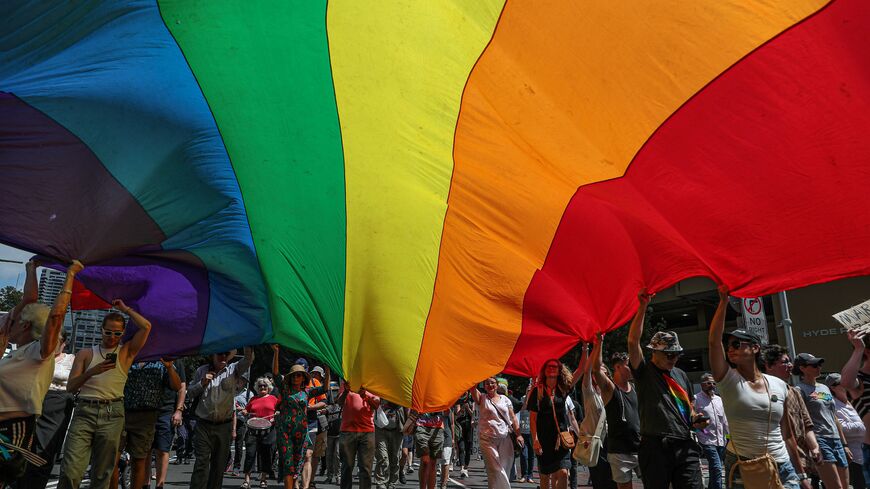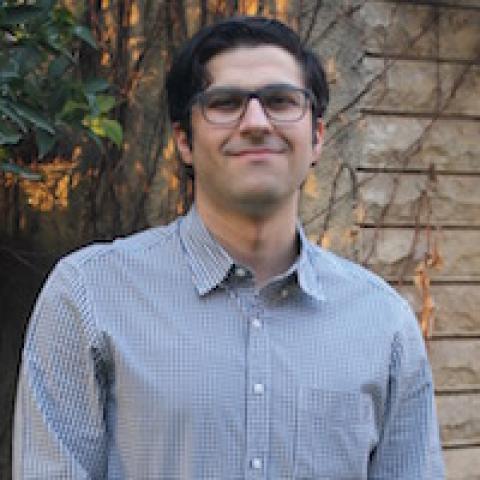LGBTQ tourists can now visit Saudi Arabia, according to the kingdom's official tourism site. The shift follows a series of social and economic changes that the kingdom has made in recent years. Homosexuality, however, remains illegal in the country, though these laws are not always enforced.
The Saudi Tourism Authority’s website visitsaudi.com has an updated section under its Frequently Asked Questions page stating “Are LGBT visitors welcome to visit Saudi Arabia?” The answer to the question reads as follows:
“We don’t ask anyone to disclose personal details and never have. Everyone is welcome to visit our country.”
There was no announcement of the change but accounts on Twitter started circulating the news last Wednesday.
It's very sad to see a country criminalize the LGBT community and welcome them in the same time.
So what do you do if you were Saudi Arabia? Easy, Criminalized LGBT community make sure that your lgbtq citizens are in prison and in the same time welcome to International LGBT… pic.twitter.com/EdvwDu7bpG— Wajeeh Gay Lionوجيه المثلي الأسد (@WajeehLionn) April 26, 2023
Background: Like most Muslim-majority countries in the Middle East, same-sex relationships are prohibited by law in Saudi Arabia. This is due to the conservative culture and traditional interpretation of Islamic law, Sharia, which forbids homosexuality. Same-sex relationships are punishable by death or flogging in Saudi Arabia.
But Saudi laws against homosexuality are inconsistently enforced in the kingdom.
“There were no known prosecutions for same-sex relations during the year,” read the US State Department’s 2022 report on human rights.
#السعودية 🇸🇦 تسمح للمثليين وللأصدقاء باصطحاب حبيباتهم (غير المتزوجين) وللنساء بارتداء البكيني في الأماكن والمنتجعات السياحية الخاصة، وقريبًا سيتم تقنين بيع وشراء وتعاطي المشروبات الكحولية (الخمور) في أماكن خاصة كذلك.
ما أجمل الانفتاح المقنن الذي يقبل بالآخر وبثقافته لكن دون تعدي… pic.twitter.com/wWYUWdCMAF— علي البخيتي (@Ali_Albukhaiti) April 27, 2023
It is difficult to determine how much repression the LGBTQ community faces in Saudi Arabia, according to the London-based Human Dignity Trust, which tracks anti-LGBTQ laws around the world.
“Societal stigma and the absence of LGBT organizations limits reporting of discrimination,” read the organization’s page on Saudi Arabia.
Saudi authorities have targeted purported LGBTQ activity in some ways recently. Last June, Saudi officials claimed that rainbow-colored toys were “promoting homosexuality.”
Why it matters: Saudi Arabia’s tourism site declaring LGBTQ people “welcome” is in line with the massive social changes that have taken place in the kingdom in recent years. In 2018, Saudi Arabia lifted its ban on women driving. However, several activists campaigning for a woman’s right to drive were arrested shortly before the decision.
The same year, Saudi Arabia announced women would no longer be required to wear an abaya — a long article of clothing that covers the body from head to toe.
In 2021, Pure Beach opened in Jeddah on the Red Sea, becoming the first beach in Saudi Arabia where women can wear bikinis.
Some traditional restrictions remain in place in Saudi Arabia, such as the ban on alcohol.
The treatment of LGBTQ people in Saudi Arabia has harmed the kingdom’s international image. For example, American golfer Phil Mickelson, who plays for the Saudi-backed LIV Golf tour, called Saudi people “scary” last year, claiming they "execute people over there for being gay.” The comments elicited a strong backlash and prompted Mickelson to apologize.
Know more: Unmarried couples are also “welcome” to visit Saudi Arabia, according to the tourism website.
“Everyone is welcome to visit Saudi Arabia and unmarried couples are able to share accommodation … it is important to respect local customs and act in a culturally sensitive manner when in public,” read the site.
Saudi law prohibits men and women from living together unless they are “mahram,” an Arabic-language term referring to close family members or spouses. However, in 2019, Saudi Arabia decided to allow unmarried foreign couples to share hotel rooms.
The law concerning this matter received media attention in January due to Portuguese soccer star Cristiano Ronaldo moving to Saudi Arabia to play for the Al Nassr Football Club. Ronaldo has lived with his girlfriend, Georgina Rodriguez, to whom he is not married. Saudi lawyers told the Spanish news outlet EFE at the time that authorities have been turning a blind eye to unmarried foreigners living together.
Hotels in other parts of the Middle East also regularly allow foreign couples to stay in the same room without proof of marriage. Locals and citizens of Muslim-majority countries, however, often need to show a marriage certificate in such situations.








